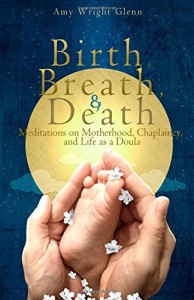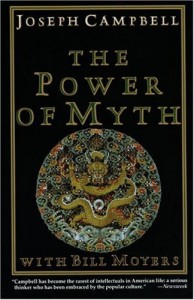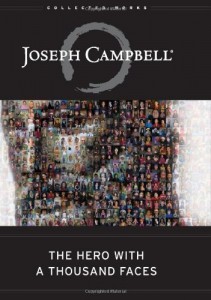Joseph Campbell On Love And “Following Your Bliss”
I delivered this sermon at the Unitarian Universalist Church of Fort Lauderdale on Sunday, July 27th. Note that the myth of Cupid and Psyche was shared with the congregation earlier in the service. I build upon this myth as I reflect upon human love. – Amy Wright Glenn
____
In the story of Psyche, our protagonist sets out to find her lover despite tremendous odds. The search for a beloved is a reoccurring theme found in mythologies worldwide.

It is also a reoccurring theme in philosophy. For example, in Plato’s Symposium, Aristophanes explains why the search for the beloved is so intense.
Originally, human beings had four arms, four legs, and two sets of genitalia. Those with both male and female parts where called the children of the moon. If a human had two sets of female parts, she was a child of the earth. The children of the sun referred to human beings with two sets of male parts. At this time, humans were extraordinarily powerful and the gods became jealous. They cut with lightening bolts each human and split them into two. Only our naval – our belly buttons – show the place of the original link we had with our other half. Much of our experience of love’s intensity is due to our search for the other part of our original selves. According to Aristophanes, no earthly joy can compare to this reunification.
Now, one can interpret both of these stories on multiple levels. Perhaps, Psyche is the mind and Cupid is the heart. The myth of their love highlights the need to join mind and heart together in trust and harmony as we navigate the perils and dramas of human life. With regard to Plato’s story in The Symposium, perhaps the splitting of our original selves represents an existential disconnect we feel as humans and it is through love alone that we experience wholeness.
Yes, there are many levels of meaning we can examine with regard to stories exploring human love. In our quest for understanding love’s power, let us consider to the insights provided by the late professor of mythology, Joseph Campbell.
When I told my husband Clark that I would be speaking this morning on human love, Joseph Campbell, and in particular Campbell’s famous directive to “Follow your Bliss”, Clark just smiled. “Whenever we have followed our bliss, that is when the best things have happened to us,” my husband said. True. Yet, this doesn’t mean the journey of loving and listening deeply to one’s intuition is easy.
Joseph Campbell devoted his life to studying mythological stories. He was a well-respected professor at Sarah Lawrence College in New York for nearly forty years. In the Myth and Ritual classes I taught for over a decade at The Lawrenceville School in New Jersey, we read The Power of Myth which is a Socratic like conversation between interviewer Bill Moyers and Joseph Campbell.
In the first chapter, Campbell tells Moyers:

“People say that what we are seeking is a meaning for life. I don’t think that’s what we’re really seeking. I think that what we’re seeking is an experience of being alive, so that our life experience on the purely physical plane will have resonance within our own innermost being and reality, so that we actually feel the rapture of being alive. That’s what it’s finally about, and that’s what (myths) as clues help us find within ourselves.”
When my Grandma Wright died, Clark and I were living in Newport. Rhode Island. Now, I have seen my dad tear up many times when I was young, especially while listening to his favorite pieces of classical music. But when my dad called to tell me grandma had passed away, I heard, for the first time, my dad really weep. That moved me. Over the next few days my memories of the last time I saw my grandma kept replaying in my mind.
My grandma was washing apples in her kitchen sink. She was bent over with age and mentally challenged with Alzheimer’s. After a week of visiting family in Utah, Clark and I were saying goodbye. My grandma took one of her china cups and washed it as if it was an apple. She handed it to us sweetly saying “Take this with you.” Tears filled my eyes because she was always so selfless. She had given me a multitude of fruit over the course of my lifetime as healthy treats when saying goodbye. And here she was generous to the end even though she couldn’t tell the difference between the china cup and the apple. Clark took the cup graciously and then when she wasn’t looking, put it back on the drain board.
While it’s human nature to sort through stories for meaning, I agree with Campbell about the supremacy of experience over meaning. It was the experience of heart opening kindness on the part of my grandma and the experience of heart wrenching pain on the part of my dad that transformed me.
I remember vividly my experiences working as a hospital chaplain. At 3am one the morning, a woman delivered an 18-week-old baby. Much too young to survive, the child died and the mother was left with wildly deep grief. She had had a terrible fight with her boyfriend, the father of this child, two days earlier. This fight left her feeling broken inside when she discovered his unfaithfulness. Her stress levels skyrocketed, her water broke and she went into very early labor. She lost her son.
“What if we hadn’t fought? What if I had been stronger emotionally? Would my son be alive?”
These are the questions she asked me that morning. She wanted me to mirror back to her some sense of meaning. I don’t know the meaning or cause of her loss. However, I can journey with her through the desire for meaning into the experience of grief. It is our training in chaplaincy to leave the meaning aside and focus on the feeling. Experience is primary. Feeling is primary. Fully feeling brings integration and is the key to healing life traumas. Meaning comes later, if at all.
Of course, one could argue that myths by explaining things provide meaning. In fact, some scholars argue that all myth and all religion can root back to our need to explain death. Certainly, myths of love explain why we hunger for a reflection of ourselves in another, why people choose love in the face of death, why mothers grieve so when children die. Yes, myths explain on one level. Yet, Campbell argues that myths are meant to do more than this. They are meant to help us have the courage to open to experience. We want to experience love after all, not just intellectualize about it.

Later on in the dialogue, Moyers asks Campbell if he ever gets the sense that when he is trusting his deepest experience or what he calls “following his bliss”, he is being helped by “invisible hands”. Campbell responds:
“All the time. It is miraculous. I even have a superstition that has grown on me as the result of invisible hands coming all the time—- namely, that if you do follow your bliss you put yourself on a kind of track that has been there all the while, waiting for you, and the life that you ought to be living is the one you are living. When you can see that, you begin to meet people who are in the field of your bliss, and they open the doors to you. I say, follow your bliss and don’t be afraid.”
If we trust our deeper connections to love, will invisible hands help us along the way?
Before we get lost in a debate about what Campbell may have meant by the term “invisible hands,” consider if you’ve ever felt that doors have opened when you are true to the wisdom within your being? Is much our human suffering due to being disconnected from the experience of love?
In the myth of Cupid and Psyche, unseen hands help Psyche as she completes the impossible tasks required of her in order to follow her bliss and reunite with Cupid. Do unseen hands help us experience healing, wholeness, and love despite the presence of profound pain at key points in life?
How has the experience of love transformed you?
Campbell describes three kinds of human love: agape — universal compassion, eros — sexual passion, and amor — romantic love. He claims that we are most transformed through the experience of amor.
Campbell regards agape as an impersonal kind of love. Consider that to practice agape, or universal compassion, it doesn’t matter who your neighbors are, one is to love them by at the most, taking their concerns and needs to heart, and at the very least making sure one doesn’t live in a way that creates more concerns or needs for them.
Campbell, also regards Eros, or sexual love, as impersonal. The countless images of naked bodies in pornography or nearly naked bodies in Cosmo or Maxim stir up eros even though as observers we have little or no knowledge of the identity of these people behind their fleshy exteriors or attractive forms. Such images can invoke eros alone awakening what Campbell aptly describes as the impersonal “zeal of the organs for each other”.
So, knowing a person’s name, age, political or religious affiliations, sport team loyalty, fears, joys, hopes, family dramas etc, is not a prerequisite for the agape type of love that our greatest reformers of all ages have tried to awaken. Nor is it a prerequisite for the eros type of love the media in its various forms manufactures and manipulates for profit.
Of Campbell’s three loves, only amor is personal. He deems it the highest love — the most powerful and transformative love — hence his interest in listening to its dictates and studying how it is symbolized in world mythology.
The German poet Rilke described amor as the most difficult love “for which all the work of one’s life is just preparation.” Think of the power of this personal love to sustain countless couples over the course of history through all sorts of adventures, dramas, and heartaches. Consider that the experience of amor is also used in spiritual literature across the centuries as a metaphor for our longing for a merging with the ultimate beloved.
For example, in Hindu mythology, the romantic love affair between Radha, who is married to a mortal man, and Krishna who is the embodiment of the divine, is a case in point. Radha’s adultery serves as a powerful metaphor in a society known for its emphasis of marital fidelity. Here Krishna represents our need to cut our worldly and social obligations and risk everything for the love of the absolute. Amor, for many is the most powerful medicine for our wounds and a wonderful mirror within which to see our true hearts reflected back to us in the eyes of our beloved.
Maybe our experience of amor results from an ancient cosmic wounding. Perhaps, when Psyche seeks out Cupid, it is because the mind alone isn’t whole without the guidance of the heart. Without the experience of personal love, are we irrevocable adrift?
Consider the words found in “The Prophet,” a remarkable book written by Lebanese Christian poet Khalil Gibran. Gibran writes “and think not you that you can direct the course of love, for love, if it finds you worthy, directs your course.” Gibran’s words remain a central inspiration in my marriage of over 10 years. I’ve been richly blessed to know the healing power that amor—romantic personal love— brings. It combines the best of all: eros, agape, and familial love into two hearts that join together to traverse this mysterious path we call human life.
You are already on your own path, your own search, be you a child of the son, the moon or the earth. Your life will involve agape, eros, and I hope, amor.
I stand with Campbell and urge you to seek out the experience of love. Be gentle with the hearts you meet along the way. Avoid the harm that dishonesty brings. Trust that natural forces will aid you in your path as Psyche does when she seeks to win Cupid back. Take risks like Radha. Follow your bliss and don’t be afraid.
I conclude with the words of William Shakespeare who wrote: “Love is an ever fixed mark that looks on tempest and is not shaken.”
May this be more than our philosophy. May this be our experience.
Thank you.


